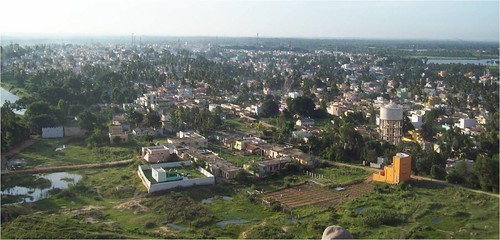Groundwater contamination is a serious, but relatively ignored issue in the country. This contamination occurs in either through geogenic or anthropogenic means. Fluoride contamination is one such example of geogenic contamination that is widely found in the Kolar district of Karnataka. However, the fluoride levels in the town of Mulbagal are lower than those in the surroundings. Earlier, a study was conducted on the impact of pit toilets on the groundwater in the area. The present paper investigates the presence of any link between these two phenomena.
Methodology:
43 wells within the town limits were analysed for this study.
Results:
The paper presents the groundwater chemistry of the samples in some detail. This includes ion concentrations, fluoride etc. Despite the fluoride contamination prevalent in the area, none of the samples had fluoride concentrations above the permissible limits. Data analysis indicates a strong correlation between these low fluoride levels and the higher concentrations of calcium and bicarbonate in the area.
Conclusion:
Leachate from pit toilets in Mulbagal town increases the concentration of sodium, potassium, calcium, bicarbonate nad nitrate ions in the groundwater, which affects the ability of fluorite to dissolve, and so prevents the rise of concentration of fluoride in the groundwater.
Previously published in International Journal of Economic and Environment Geology , Vol:3(1) 24-33, 2012
/articles/influence-anthropogenic-contamination-fluoride-concentration-groundwater-study-mulbagal